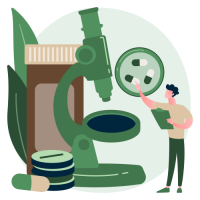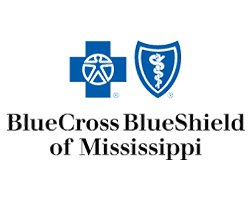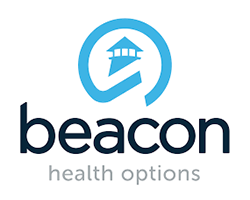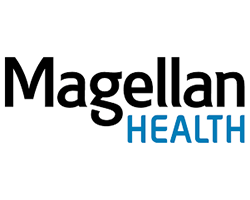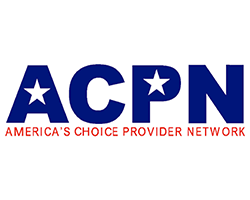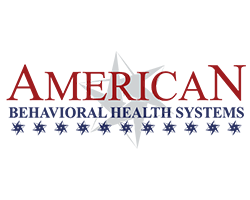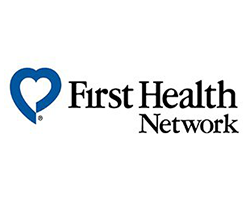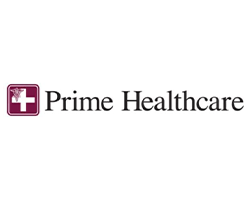Alcohol is often seen as a regular part of social life. But over time, regular or heavy drinking can lead to serious health concerns. Stopping alcohol use can bring powerful changes—both physically and emotionally. The body begins to heal, and the brain starts to regain balance. These changes don’t happen all at once, but each day without alcohol supports recovery and overall well-being.
Woodland Recovery Center provides alcohol addiction treatment that helps people safely stop alcohol use, manage withdrawal, and build healthy habits for life. Healing starts with understanding what your body goes through and how to support it every step of the way.
What happens to your body when you quit drinking?
When you quit drinking, your body undergoes significant changes as it begins to recover from the effects of alcohol.
24 hours without alcohol
Within the first 24 hours, the body begins the process of eliminating alcohol from its system. Blood alcohol levels decrease, and withdrawal symptoms may start to appear. The experience varies for each individual, depending on their drinking habits and frequency.
Some common alcohol withdrawal symptoms may include:
- Headache
- Nausea
- Shaking
- Trouble sleeping
- Anxiety or restlessness
- Sweating
For light or moderate alcohol use, the first day may bring only mild discomfort—a bad hangover. For others, especially those who have developed physical dependence, this period can be very uncomfortable. The nervous system, which has been slowed by regular alcohol use, begins to rebound and may become overactive, leading to shaking, increased heart rate, or irritability.
48 to 72 Hours: A high-risk window
During the second and third days, symptoms may get worse before they get better. For people with long-term or heavy alcohol use, this is the time when serious withdrawal can occur. Seizures, hallucinations, and a condition called delirium tremens (DTs) all require immediate medical attention.
Warning signs that someone is having an alcohol withdrawal-related medical emergency include:
- Severe confusion
- High fever
- Hallucinations
- Shaking
- Seizures
People in this phase may also experience intense cravings, emotional outbursts, or insomnia. Without support, the risk of relapse is high. Professional detox provides a safe space for medical monitoring and symptom relief, which is especially important during this critical period.
One week: Early healing
After about seven days, the body starts showing signs of improvement. Sleep may become easier. Digestion begins to normalize. The skin may look clearer, and energy levels may rise slightly. The liver, which works hard to process alcohol, begins to repair itself.
Appetite returns as nausea fades, and blood pressure may begin to drop. Some people start to notice reduced bloating, clearer skin, and fewer digestive issues. Although cravings and fatigue may still linger, the worst of physical withdrawal is usually over by the end of the week.
One month: Noticeable body changes
After four weeks, the effects of quitting alcohol become easier to see and feel. Blood pressure becomes more stable. Sleep improves in quality and consistency. The liver continues to heal, and many people notice better skin tone, clearer eyes, and more energy during the day.
Weight regulation also becomes easier as alcohol-related calories and sugar are removed from the diet. Blood sugar levels stabilize, which reduces mood swings and sudden crashes in energy. The heart becomes stronger, and blood circulation improves.
Mental clarity returns. Focus, memory, and motivation begin to rebuild. The immune system becomes stronger, helping the body fight off illness. These physical changes after quitting alcohol bring a sense of renewed health and strength.
What happens to your mental health when you quit alcohol?
Alcohol often masks anxiety, sadness, or stress in the short term—but it can make those feelings worse over time. After quitting, the brain works to restore natural chemical balance. Mood swings may be strong at first, but emotional stability improves as recovery continues.
Many people feel a greater sense of calm, fewer emotional crashes, and more confidence. Memory and focus begin to sharpen. The brain’s ability to handle stress also improves, which helps reduce the risk of relapse. Feelings of guilt, shame, or sadness may rise during early recovery, but they also present an opportunity for emotional growth through therapy or support groups.
Tips for managing discomfort during alcohol withdrawal
Physical discomfort is a natural part of early recovery. There are ways to ease symptoms while the body adjusts:
- Drink plenty of water and electrolyte fluids
- Eat small, nutritious meals regularly
- Take naps and get as much rest as needed
- Use heating pads or cool cloths for body aches
- Spend time outdoors or in quiet spaces
- Write down thoughts or talk to someone supportive
Gentle exercise like walking or stretching can also help with circulation and reduce stress. Avoid caffeine and sugar, which can make symptoms worse. Having a routine—even a simple one—helps the body and brain feel more secure during this transition.
Knowing when to seek medical help
Quitting alcohol without support can be risky. Not everyone needs medical detox, but for people who drink heavily and/or daily, it can be life-saving.
Signs that medical detox may be needed:
- Drinking first thing in the morning
- History of seizures or hallucinations
- Heart racing or blood pressure spikes during withdrawal
- Shaking that doesn’t stop
- Strong cravings or suicidal thoughts
Tapering slowly under medical supervision may work for some, but detox in a treatment center offers safety and comfort with medical support 24/7. Woodland Recovery Center offers both medical detox and emotional care to assist with managing a person’s withdrawal symptoms.
One year sober: A healthier body and mind
At the one-year mark of sobriety, many changes become permanent. The liver often fully heals if the damage wasn’t too advanced. Heart health improves, and the risk for alcohol-related cancers goes down. Weight stabilizes, and digestion becomes more efficient.
The immune system functions better, reducing the chance of infection. Skin often looks brighter, and energy levels stay steady throughout the day. Sleep becomes deep and restful. Emotional stability grows stronger, and the mind feels clearer and more focused.
Mental health continues to improve, with less anxiety, fewer mood swings, and more confidence in handling stress and relationships. For many, reaching one year of sobriety is a major life achievement, full of pride and new possibilities. However, maintaining sobriety requires ongoing effort and vigilance.
Staying motivated and preventing relapse
Recovery is a lifelong journey. Staying alcohol-free takes daily effort, but it also becomes more rewarding over time. Setting goals, building supportive routines, and practicing healthy habits can help prevent relapse.
Here are some effective strategies to stay motivated:
- Track your progress by keeping a journal
- Celebrate every milestone, no matter how big or small
- Stay engaged with a supportive community
- Prioritize hobbies and physical activity to recharge
- Don’t hesitate to seek help when you need it
Relapse doesn’t mean failure—it’s a signal that more support may be needed. Staying motivated means remembering why you started and allowing yourself grace through setbacks. Woodland Recovery Center offers our alumni and addiction aftercare programs to provide continued support for those in recovery.
Discover a fresh start with Woodland Recovery Center
The effects on the body after quitting alcohol begin quickly and continue over time. The first few days may be the hardest, but each hour without alcohol gives your body a chance to repair and recover.
Self-care, support, and patience all play a role in making this change stick. For people with alcohol use disorder, medical support can be the difference between struggling and healing. Woodland Recovery Center offers compassionate, expert care for every step of addiction recovery. Our alcohol addiction treatment includes detox, therapy, nutritional support, relapse prevention tools, and long-term planning. With the right help, a healthier, alcohol-free life is within reach.
If you or someone you love is ready to make a change, Woodland Recovery Center is here to help. Call us today at 662.222.2989 or reach out to us through our contact form.



